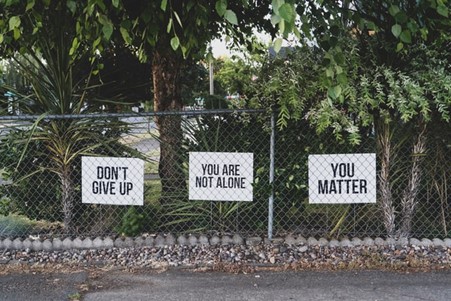
Nothing exacerbates mental health issues more than the feeling of exclusion from the rest of society. Unfortunately, the stigma surrounding emotional, mental, and behavioral disorders creates just such a problem for most sufferers. Can this debilitating stigma ever be eradicated?
Fortunately, major strides toward combating stigma have been taken through the growing prominence of self-help groups, social services, and increased representation in film and other media. However, certain social media trends and negative film portrayals continue to push negative stereotypes.
Change cannot occur without understanding the problem. To this end, Eva Carlston Academy reviews how it’s vital to discuss the origins of mental health stigmas, as well as the pros and cons of current efforts to combat them.
Causes and Effects of Mental Health Stigma
Not unlike frequently discussed social issues such as racism and homophobia, a great deal of mental health stigma stems from fear. The American Psychiatric Association notes that many consider those with mental health issues either incompetent or unpredictable, which grows into the belief that they are unsafe.
Stigma most prevalently impacts those who struggle with substance use disorders. A 2016 study showed that roughly 75% of people perceive addicts negatively. This likely occurs because many believe addicts at fault for their own mental health struggles. Depressive disorders are viewed more kindly yet are not altogether exempt from stereotypes and misunderstandings.
This results in mental health patients battling numerous societal issues on top of their internal struggles. They may find it more difficult than most people to find housing or employment if they choose to be open about their diagnosis. Hiding it, however, leads to increased feelings of worthlessness.
Moreover, those attempting to hide their disorders may do so in part by ceasing treatment. In this way, the stigma against mental health disorders only serves to worsen these already troublesome conditions.
Combating Stigma on a Personal Level
Those wishing to overcome mental health stigma have a long road ahead of them. Issues that mental health sufferers must combat include, but are not limited to:
- Bullying and verbal harassment, whether in person or online
- Feelings of isolation from “normal” friends and family
- Loss of hope for personal and professional success
- Inadequate health insurance coverage
This last issue, as well as struggles finding housing or employment, can be overcome through numerous social services. Providers of such services may also put the sufferer in contact with relevant support groups to help fight feelings of isolation.
Combining these efforts with proper therapy and treatment may help mental health sufferers to begin fighting their feelings of worthlessness or hopelessness. Fighting stigma alone will only make the sufferer feel more ostracized. Finding a healthy community is integral to reminding mental health sufferers that they are not alone.

Improving Public Understanding of Mental Health
Despite society’s constant fight to do away with offensive words such as “retarded,” the misuse and overuse of negative mental health terms continues to grow daily. Reddit users frequently reference perceived entitlement as “narcissism,” failing to recognize the irony of an anti-narcissist proudly labeling others with their own uninformed armchair diagnosis.
The National Alliance on Mental Illness further notes that many films and TV shows use the word “psychotic” as an easy insult. For instance, looking at Batman films alone, viewers can see the world negatively used in both The Dark Knight and Batman v Superman.
Furthermore, the APA notes a correlation between increased mental health discrimination around the 2019 release of Joker. That’s three instances of the same problem, all related to just one intellectual property.
When it comes to issues such as race, gender, and sexual orientation, Hollywood strives for inclusion. These efforts must extend to mental health issues as well. Series such as BoJack Horseman and Shameless try to show the negative aspects of mental health issues through a sympathetic lens. Positive inclusion exists, but not strongly enough to balance out the negative.
Summary
Social services provide mental health patients with useful resources and support to combat the effects of stereotyping and discrimination. The stigma itself, however, remains largely unchallenged. Without better efforts to promote understanding and compassion, mental health sufferers will continue to feel at odds with a society that refuses to embrace them as they are.



